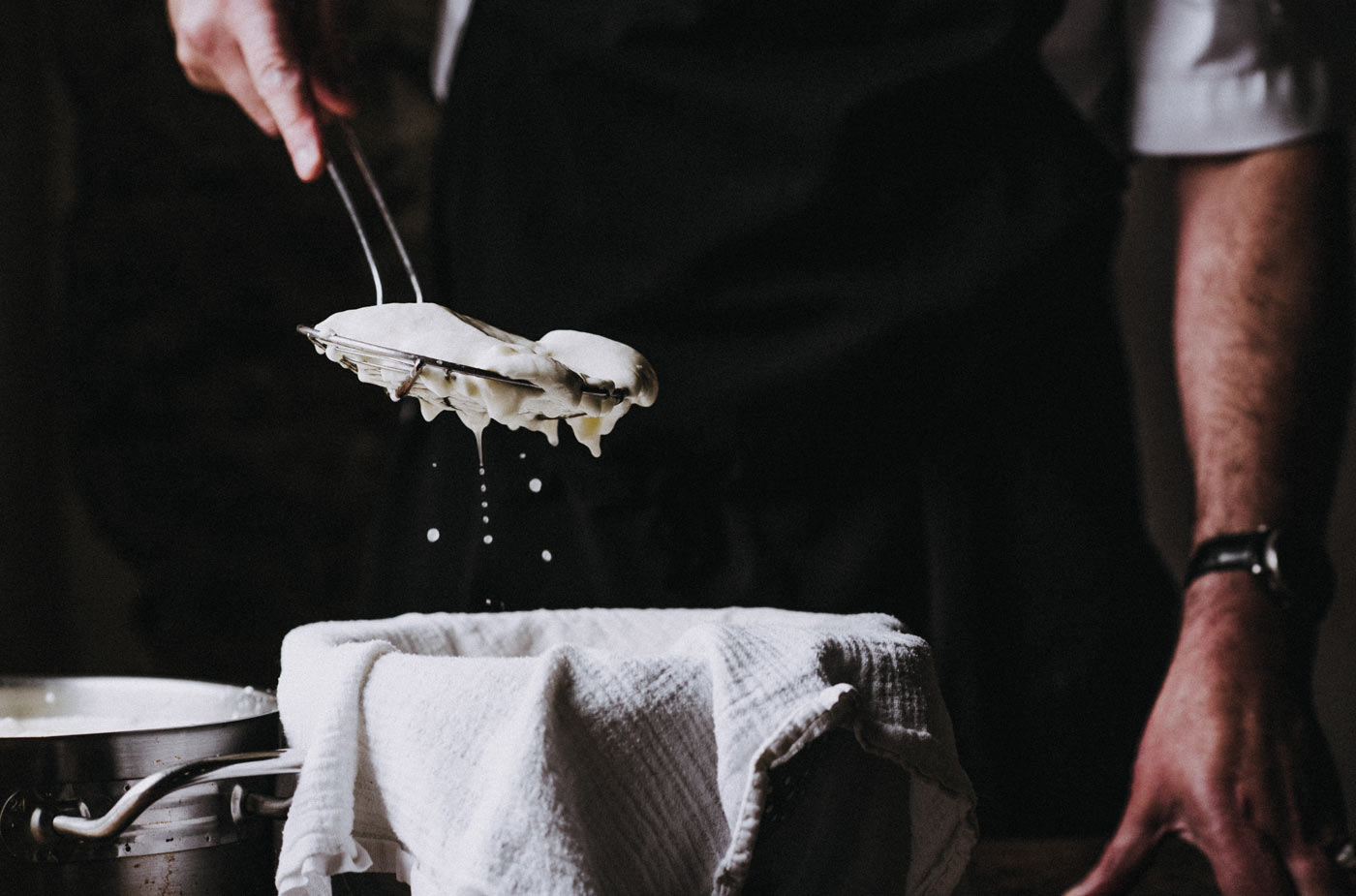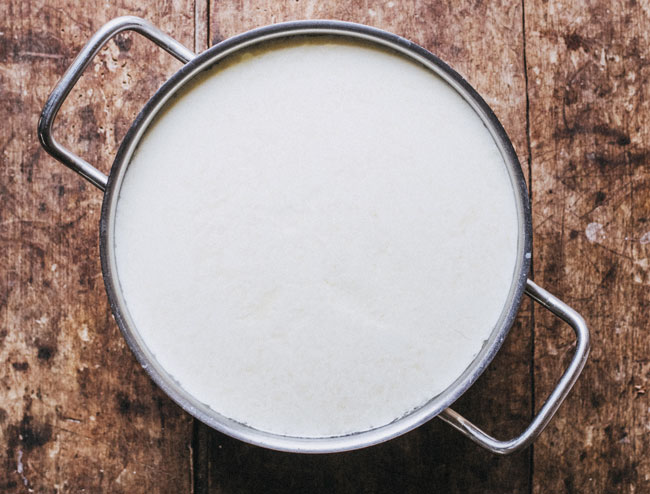Curd it here first

Confident cooks turn their hand to everything from bread baking to meat curing, yet cheesemaking is almost unheard of. Kathryn Lewis spent a day at Exeter Cookery School and discovered that it’s surprisingly easy
Mass-produced food may be as processed as ever, but the past decade has also seen a pleasing return to an appreciation of both the sensory experience and health benefits of eating food made on a small scale from quality ingredients.
Rediscovering the traditional methods our grandmothers would have used to create staples at home has played a big part in this revival. However, while breadmaking, curing, pickling, fermenting and even gin-infusing are enjoying a domestic renaissance, cheesemaking is still a niche hobby.
Making fresh cheese is something everyone can do at home, believes Louise Talbot, founder of Cutting the Curd and course tutor at Exeter Cookery School. It doesn’t require fancy equipment or expensive ingredients, yet the process is so alien to most that they don’t have the confidence to give it a go.
‘Given the right conditions and quality ingredients, cheese almost makes itself,’ says Louise. ‘You simply do the facilitating and the waiting.’
‘Just as there’s a knack to handling dough in breadmaking, there are tricks to turning milk into cheese,’ explains Louise. ‘Bread and cheese are both produced by the process of fermentation: bread rises from the action of yeast; and cheese emerges from a saucepan of milk because of the bacteria.’
And, just like attempting to craft your first loaf of sourdough, having someone guide you through the process is invaluable. Remember your early baking experiences? It’s a safe bet that they didn’t quite hit the mark (or, more likely, were in heavy-as-a-brick territory).
Recipes may direct you through the steps, and online videos demonstrate how rapidly the milk should boil, but neither can show you the exact point at which a mozzarella ball reaches perfect elasticity or help you know just how the seasoning of your halloumi should taste.

Cheesemaking 101
The aim of the game is to cause the milk to split into the solid curds and liquid whey. This is achieved by souring the milk, either through the addition of acid or a bacterial culture. The whey is removed and the curds are kept to make the cheese.
What you do next with the curds determines which cheese you create. Hard cheeses are pressed and then ripened to remove additional whey whereas soft cheese (such as mozzarella, mascarpone, cottage and cream cheese) are left with a higher water content.
Milk matters. Just as terroir determines the complex flavours of wine, the milk used in the cheesemaking process will affect taste. Louise recommends using pasteurised unhomogenised whole milk, as homogenised and semi-skimmed won’t work.
Start with the soft stuff. Making a soft cheese such as mascarpone is astonishingly simple for the uninitiated. See the recipe on page 21 and kick off your fave new hobby.
Whey to go
Want to road-test a recipe before signing up for a course? Louise’s mascarpone recipe is a super easy way to jumpstart your cheesemaking journey
You will need:
Double cream 600ml
Tartaric acid ¼ tsp
- In a heavy-based saucepan, slowly heat the cream until it’s at boiling point.
- Add the tartaric acid and stir for a minute – the mixture should slowly begin to thicken and curds start to form. Remove from the heat.
- Line a sieve with 3-4 layers of fine cheesecloth. Place a bowl underneath and ladle the curds into the sieve.
Learn from the experts – upcoming cheesemaking classes at Exeter Cookery School:
Mozzarella, Halloumi and Ricotta
6 June 2020
15 October 2020
Feta, Edam and Camembert
19 September 2020
www.exetercookeryschool.co.uk
Share Curd it here first with your friends

